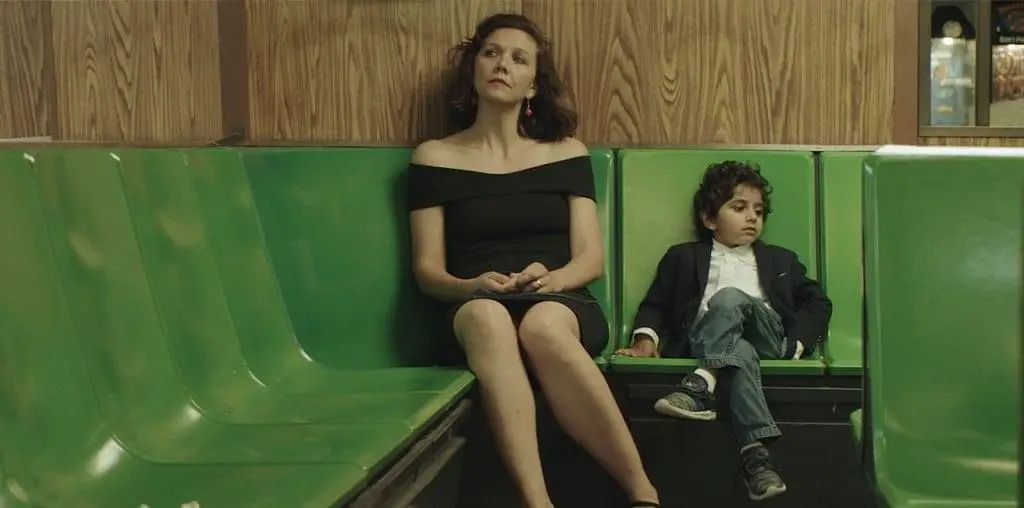
“Hey, I went to see your movie last night,” says author David Corbett, with a hint on comic derision, perhaps even a bit of accusation, rumbling in his voice. The movie he’s referring to is S.W.A.T., the new action film starring Samuel Jackson and Colin Farrell as kickass cops on a Special Weapons and Tactics team in Los Angeles. At my suggestion, Corbett saw the underwhelming shoot-em-up in his hometown of Vallejo, California, but I haven’t caught up to him till today, ultimately locating him on his cell phone as he drives from Phoenix to Tucson, Arizona for a series of book events. After describing the cactus and rocks and 18-wheelers that pass for scenery on his long drive, Corbett offers his succinct summary. “I think S.W.A.T. was mainly intended as a recruitment film for the L.A.P.D.” he says, “I think 18-year-olds with overstoked hormones and not a fuckin’ clue what they want to do with their lives are going to see this and go, “Oh, I can do that!” Of course, when they realize that getting on S.W.A.T. is about as easy as going through Navy SEAL training, they’ll be singing a different song.”
A former private investigator and one-time probate lawyer, Corbett now makes his living writing crime novels. Good ones. His first, The Devil’s Redhead (Ballantine, 2002) won instant acclaim for its wit, style and stunning emotionality. His latest, Done for a Dime (Ballantine), is even better, a fast-paced yarn about a murdered bluesman, a bummed-out cop, and a horn-playing prime-suspect with Daddy issues, told with plausible plotting, richly-imagined characters, a few nice surprises and some extremely believable dialogue elements entirely lacking from S.W.A.T.
“Nobody speaks in dialogue in this movie,” Corbett says. “They all talk in slogans. The only cop who looked and talked like a real police officer was the potbellied Mormon guy in the gun cage, constantly sneaking fast food and soda pop, begging the guys not to tell his wife. That’s your average cop. Everybody else in the movie was a cartoon. I was actually embarrassed for Samuel Jackson.”
“Maybe this movie should have been titled C.L.I.C.H.E.” I remark.
“Or just plain B.A.D.” Corbett replies. “The characters were so far off the mark. Cops are fascinating people, real cops are. They are really interesting, with great human stories to tell, but in this movie nobody ever did or said anything that made them really interesting. Except the fast food guy.”
In the film, the Bad Guy, a French drug dealer (Oliver Martinez) who’s offered 100 million dollars to anyone who can bust him out of jail, has a moment where he verbally berates the S.W.A.T. team, accusing them of wanting to be cowboys in the Wild West.
“That’s another cliché,” I suggest. “The Cowboy Cop. But it’s a cliché that a lot of people accept as true, that a lot of cops are trigger-happy predators, more dangerous to the public as they are to people committing crimes.”
“Most cops aren’t like that,” Corbett insists. “When you consider the number of cop-related shootings that actually go down, with cops shooting innocent or unarmed people, or even armed people, the number is so slim it’s actually almost bizarre. Cops realize that, first of all, if you fire your gun there’s much fuckin’ paperwork – you really don’t want to fire your gun unless you have to. And in most cases, cops know that tactics can overwhelm a suspect much better than gunfire can.
“I had a buddy who was a sniper with S.W.A.T.” he goes on, “and he only had to take a guy out once, but he says, ‘You don’t forget that s**t.’ This whole idea that cops are steely gun-totin’ rascals taking down bad guys in the Wild West, it’s not like that. He couldn’t sleep for a long time after he killed the guy.”
Murchison, the seasoned cop from Corbett’s latest book, muses at one point that you have to think you’re invincible to be a cop on the street. That’s the only way you get the job done. I ask Corbett if he believes that’s true.
“Well, you can’t back down from anybody when you’re a cop,” he says. “One of the few interesting scenes in S.W.A.T., and the only one where I think Colin Farrell played a cop’s attitude perfectly, is when they’re in that bar and he sees his old partner, and that guy starts getting’ in his face, and he’s just so laid back about it, as if he’s more amused than threatened. That’s how a cop would probably act, because you never back down. Most cops believe that if you show an inch of vulnerability, they’ll eat you alive on the streets.”
“Writing a cop character must be hard,” I remark.
“Damn right. I’ll never do it again,” Corbett says. “Never. It’s too hard to avoid the clichés. There are only so many ways this stuff can happen in a book or a movie. As hard as I tired to make something fresh, I still think I ended up using stuff that’s been done to death.”
“So . . . maybe S.W.A.T. deserves a break,” I wonder.
“Naaaaah,” Corbett responds. “There are clichéd cop movies, and there are bad cliché cop movies and this one is bad, bad, bad. Even cliché cop movies can maintain a certain level of drama. And this sure as hell wasn’t drama.”
Discuss David Templeton’s “Talking Pictures” column in Film Threat’s BACK TALK section!
____________________________________________________________
Writer David Templeton takes interesting people to the movies in his ongoing quest for the ultimate post-film conversation. This is not a review; rather, it’s a freewheeling, tangential discussion of art, alternative ideas, and popular culture.
Discuss David Templeton’s “Talking Pictures” column in Film Threat’s BACK TALK section!
